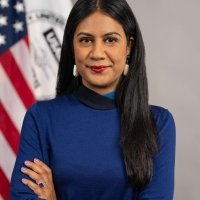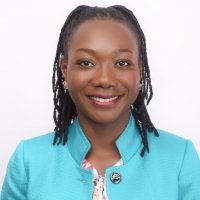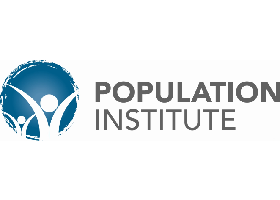Population and Development in the 21st Century
Submit a question
Thirty years ago, 179 governments came together in Cairo and transformed the global approach to population issues. A landmark event, the International Conference on Population and Development (ICPD) was groundbreaking in its recognition that population issues are deeply intertwined with human rights, gender equality, and sustainable development. The ensuing Program of Action set ambitious goals for improving reproductive health, reducing infant, child, and maternal mortality, and achieving universal access to education, especially for girls. This represented a major departure from previous policies that often focused narrowly on fertility reduction.
On World Population Day, the Wilson Center's Environmental Change and Security Program and Maternal Health Initiative, in partnership with the Population Institute, hosted an event featuring leaders on population and development issues and contributors to a new Population Institute report, Revitalizing Population and Development in the 21st Century. Panelists discussed what more is needed to realize the vision of ICPD, with particular focus on opportunities to further population and environment goals, financing, reproductive health, gender equality, and advancing multisectoral approaches to ensure no one is left behind.
Key Quotes:
Dr. Priscilla Idele (Keynote Speaker)
“It is important to recognize that the world today is more diverse than in 1994. Thirty years ago, most countries had high fertility and growing populations. Today, countries with high fertility and rapid population growth are concentrated in sub-Saharan Africa and South Asia, while approximately 66 percent of the world’s population now lives in a country with a total fertility rate at or below the replacement level of about 2.1 children per woman.”
“As the world faces the greatest diversity in population trends in history, it is crucial that countries use population estimates and projections to anticipate and plan for their demographic future. This requires strengthening data systems and more systematic use of population data, including spatial distribution, and age structure, and how these variables are projected to change in the coming decades.”
Emily Dwyer (Panelist)
“LGBTIQ people are part of populations everywhere, we always have been. But there are very few development and humanitarian processes that actually result in LGBTIQ people being counted…If we look at processes like the Sustainable Development Goals, where LGBTQIA+ people are also not mentioned–None of the indicators that are used to track data, with respect to the SDGs, disaggregate in any way for LGBTIQ people.”
“A lot of the energy and ideas in terms of what LGBTIQ inclusion means comes from the majority world, from the Global South. So a lot of this is about listening and not making assumptions about where those ideas are coming from and where the energy is coming from.”
Dr. Apoorva Jadhav (Panelist)
"We cannot talk about equity and partnership without radically rethinking the rules of this partnership. There is now widespread consensus that development and humanitarian assistance needs to be more responsive to the needs and priorities of local actors and communities to embrace their ideas for how to address them.”
"Demographic diversity demands agility and donor priorities based on a data-driven approach. We can't talk about changing priorities without acknowledging the constrained resource environment that many development agencies and governments are operating within. It's imperative to understand demographic diversity in order to better devise strategies for a maximum return on investment."
Kathleen Mogelgaard (Panelist)
"When we examine population trends, we look at numbers. But the Program of Action helps us understand that behind every number is a person, and that when we are examining population trends, it is an opportunity to better understand where inequities exist and where they persist."
"I think what we mostly think about when we think about ICPD from 1994 is that incredibly important core consensus around the right of couples and individuals to freely and responsibly determine the number, timing and spacing of their children and to have access to the information and the means to do so."
Dr. Nkechi Owoo (Panelist)
"Standards of living have increased tremendously within this 30-year period. But if we were to examine the regional breakdowns, we would notice that production and consumption patterns as we see them across various countries have not been equitable, and this has tended to be led by the Global North."
"I think that the availability or the access to appropriate technologies and innovation can make a great difference in our environmental conservation efforts. (...) Some of these technologies come with a heavy cost burden. And what it means is that not all of these may be as accessible as we might want to Global South countries. And of course, this presents a problem, right? It would be helpful to have continued and more sustained international assistance to try to complement some of these local efforts so that we can see a strengthening of science and technological capacities within developing countries."
Keynote Speaker

Moderator

Vice President, Sustainable Markets, Pact
Panelists




Hosted By

Environmental Change and Security Program
The Environmental Change and Security Program (ECSP) explores the connections between environmental change, health, and population dynamics and their links to conflict, human insecurity, and foreign policy. Read more


Maternal Health Initiative
Housed within the Wilson Center's Environmental Change and Security Program, the Maternal Health Initiative (MHI) leads the Wilson Center’s work on maternal health, global health equity, and gender equality. Read more



